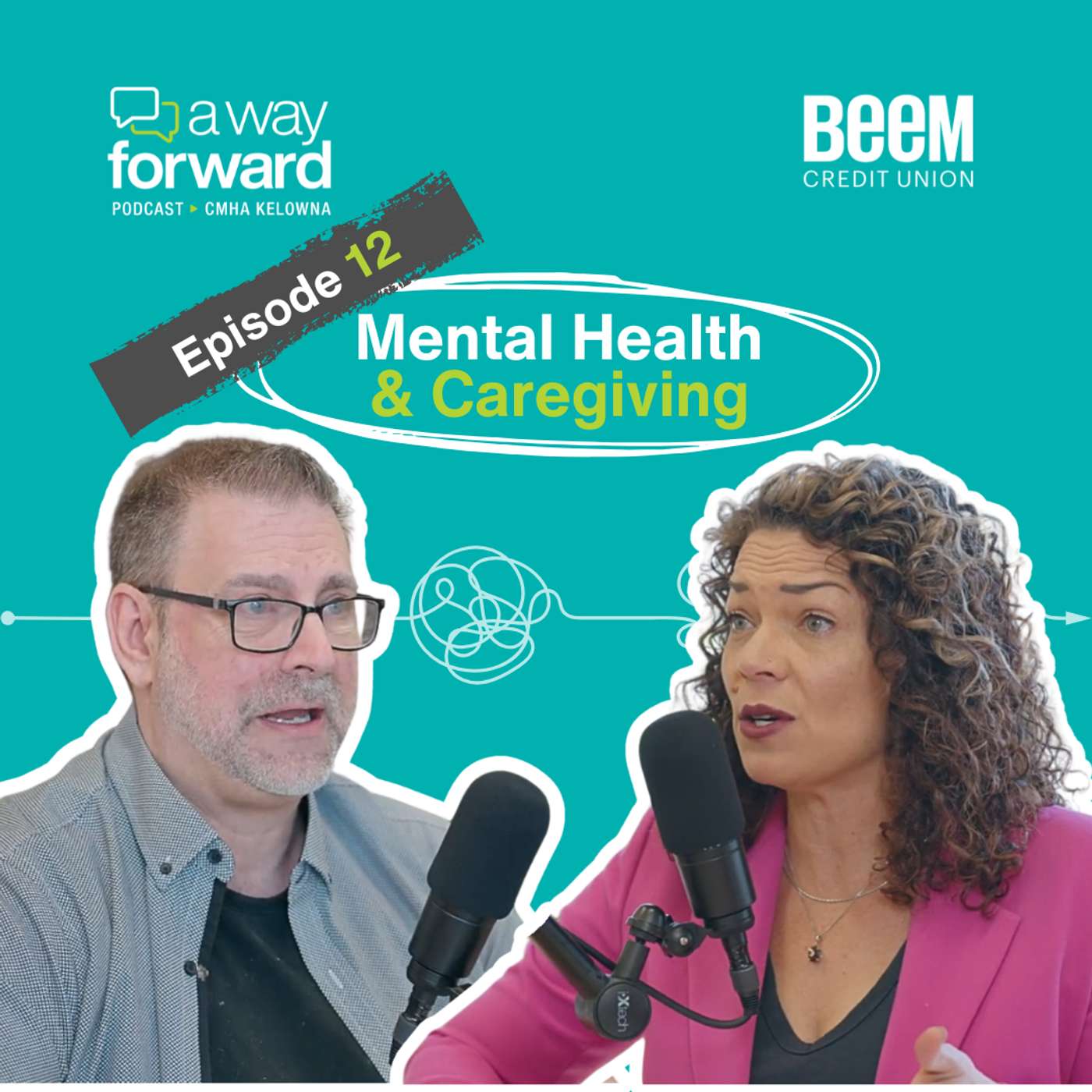Podcast Episode Details
Back to Podcast Episodes
Episode 12: Mental Health & Caregiving
Episode 12
In Episode 12: Mental Health & Caregivers of A Way Forward Podcast | Presented by Beem Credit Union, hosts Jessica Samuels and Mike Gawliuk, CEO of CMHA Kelowna, explore the realities of mental health and caregiving. As millions of Canadians provide unpaid care to loved ones, the toll on caregivers—especially family caregivers—is growing. Jessica and Mike unpack new data, share personal stories, and offer guidance for those dealing with this often-invisible situation.
Key Topics Discussed:
Who is a caregiver?
Defining the broad range of caregiving roles: professional, family, and volunteer caregivers.
The unpaid care crisis in Canada
5.7 billion unpaid hours of care are provided annually—valued at over $97 billion.
Aging population = Rising demand
With an aging demographic, caregiving needs are set to double—impacting both unpaid and professional caregiving systems.
Mental health impacts of caregiving
Caregivers often experience fatigue, stress, financial strain, and social isolation. Jessica and Mike discuss both the rewarding and difficult aspects of caregiving.
Caregiver burnout and what to watch for
Learn to recognize early signs of burnout: low mood, sleep issues, appetite changes, and increased substance use.
Strategies for self-care & support
Tips include accepting help, seeking respite care, connecting with others, and using caregiver assessments to monitor your own well-being.
Global examples of caregiver support
Countries like the UK, Germany, and Australia offer caregiver allowances, respite care, and training programs—what can Canada learn?
Key Takeaways:
- Caregiving is everywhere – 1 in 4 Canadians are caregivers; this will rise to 1 in 2.
- Most care is unpaid – Over $97B worth of unpaid caregiving in Canada annually.
- Older caregivers are rising – Many are 65+ and need care themselves.
- Canada lags in supports – Other countries offer stipends, respite, training.
- Caregiver burnout is real – Watch for sleep/mood changes, withdrawal, overwhelm.
- Marginalized groups hit harder – Racialized, Indigenous, and 2SLGBTQIA+ caregivers face extra barriers.
- Support is available – Use tools, groups, and respite services to cope.
Resources:
Caregiver stats
https://canadiancaregiving.org/sage-magazine-fall-2024-issue-caregivers-need-support-now/
https://www.statcan.gc.ca/o1/en/plus/2649-more-half-women-canada-are-caregivers
https://www150.statcan.gc.ca/n1/daily-quotidien/200108/dq200108a-eng.htm
What it means to be a caregiver
https://my.clevelandclinic.org/health/diseases/9225-caregiver-burnout
Impacts of caregiving
https:/
Published on 5 months, 2 weeks ago